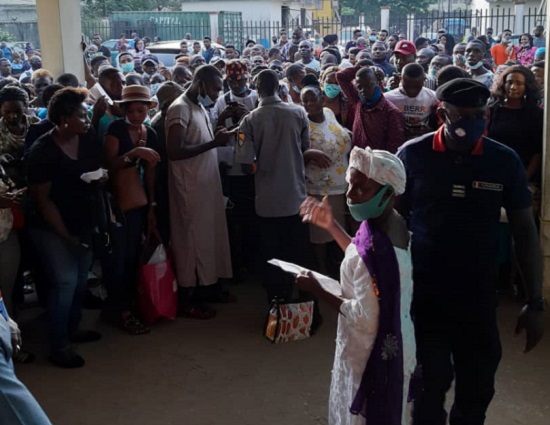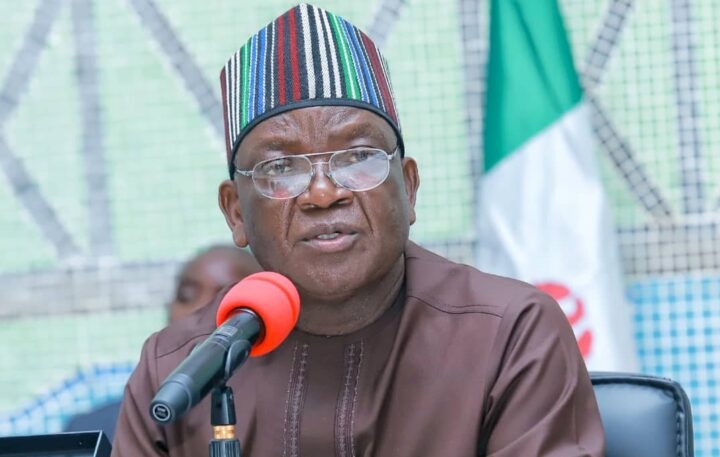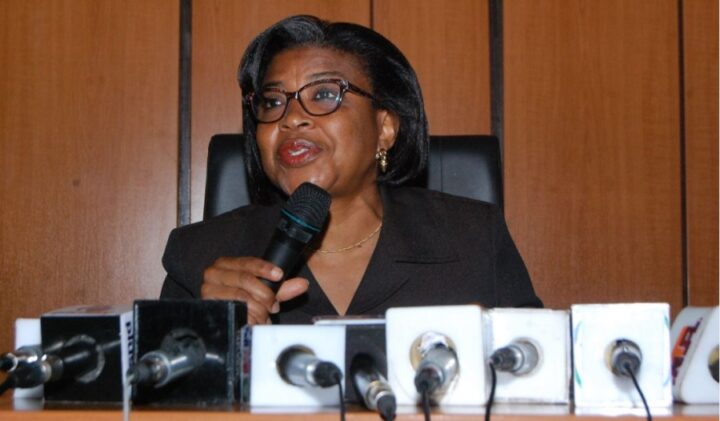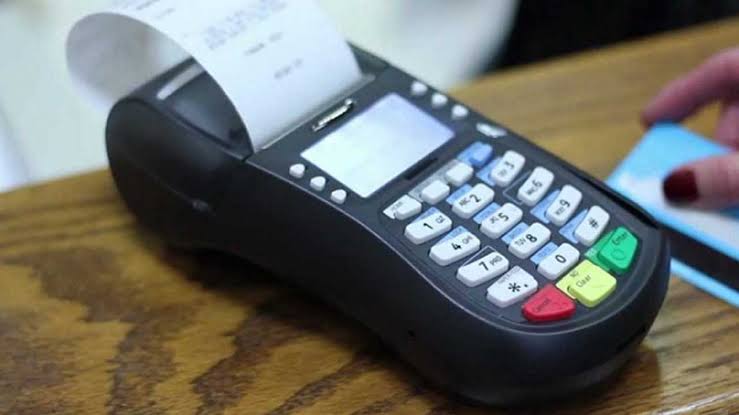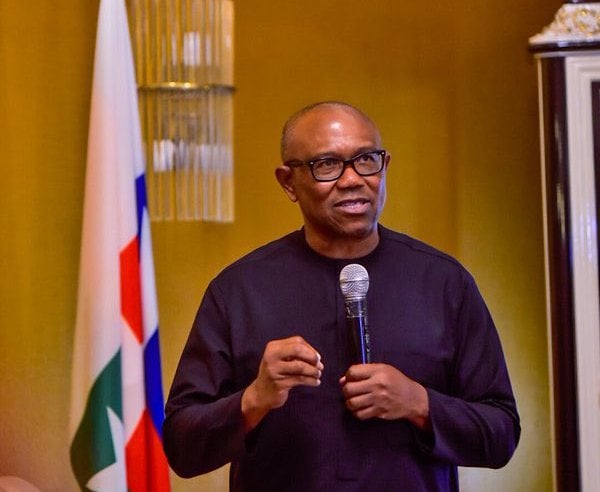It is two hours past noon and Samson had ‘restless’ written on his face. He was visibly upset too. As he paced about the vicinity of the National Identity Management Commission (NIMC) in Ikeja, in search of a pen, beads of sweat rolled down his dark skin.
Samson had come to find a solution to a problem that was about to crash his business and strain his relationships. But at that moment, the major obstacle in his way was the lack of a pen required to fill a form.
“I can’t make calls,” he said. “It’s really affecting me because I can’t reach my people in case anything happens.”
In 2021, the federal government launched the NIN-SIM linkage policy, which mandates subscribers to link their SIM cards with their national identity numbers, (NIN). The government had said the benefits include improving national security and reducing identity fraud and other online crimes.
Advertisement
Following the multiple extension of deadlines for the NIN-SIM linkage, implementation commenced on April 4, 2022 — and the Nigerian Communications Commission (NCC) directed all telcos to bar outgoing calls on unlinked lines.
As expected, the impact was immediate as millions of Nigerians were blocked from making phone calls and sending text messages — including Samson.
REGISTERED, LINKED BUT BARRED
Advertisement
He said he had earlier linked his NIN with his Globacom and MTN lines but he recently discovered that the linking process failed for the former.
“I was using an MTN line and I linked the line with the NIN before my phone got stolen. Since then, I’ve been using Glo, and it is Glo that has been blocked. I had gotten my NIN and I just discovered that it has not been linked,” the 37-year-old marketer said.
“It’s affecting both business and my relationship with people, especially family. I’m into marketing and I can’t call my customers.”
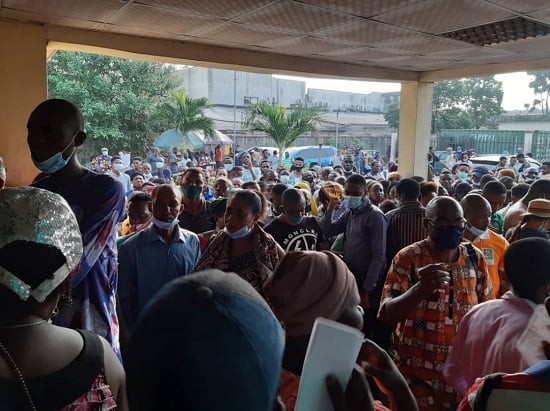
Samuel Wisdom, another subscriber, told TheCable that he got his NIN last year and complied with the government’s directive on NIN-SIM linkage.
Advertisement
But, according to him, his line was blocked on April 7, three days after the policy implementation started.
Wisdom said his network provider, Airtel, said his NIN was not verified and he was then directed to NIMC’s office for a solution.
“I went there and they said it was not registered and that I’d have to fill another form to register again,” he said.
“I’m not happy with the situation. It’s as if I’m just blocked out. You can’t call anyone — even if you’re in a difficult place where you need help — and this is bad.”
Advertisement
Narrating his experience, Tobi Tobe, said three days before the government decided to implement the policy, he tried to link his line via MTN’s USSD code, but discovered it had not been verified by NIMC.
Tobe said he had got the NIN since last year and was hoping that linking would be a smooth ride. It was not the case.
Advertisement
A media practitioner, Jerry Agada, said he lost around N1 million from being barred despite linking.
“I linked,” Agada retorted when asked why he did not. “That was the prerequisite for buying the sim at the Glo office. You can imagine my shock when I discovered my line was barred.”
Advertisement
Similarly, Abiola Akindele, a fashion designer, complained about losing her clients, while Adanna Lemchi expressed fears about the negative impact the issue is having on her startup.
During conversations with affected persons and agents, TheCable learnt that ‘unverified NIN’ is the most common problem confronting subscribers.
Advertisement
For instance, Asuquo Etukudo, who took to social media to vent about the situation, said he received his NIN in 2014, but when he tried to link it with his Airtel line, he was told that the number failed NIMC’s verification.
Hence, the line was barred.
The first pix shows my NIN, I obtained in 2014. The second shows message from Airtel that the number couldn't be verified from your office. Therefore my line was barred. What's going on, please. pic.twitter.com/NWqspVIuao
— Asuquo Etukudo (@akpama_mi) May 12, 2022
“I used that same number to link MTN, and to date, I don’t have any issues with that network provider,” Etukudo TheCable.
CORPORATE LINE/ BANK-GENERATED NIN
Some subscribers, who were barred from making calls after failed attempts to link their lines, said they found that their lines were either ‘corporate lines’ or the NIN was bank-generated.
For instance, a user of a six-year-old Globacom line said the company told her that the line was a ‘corporate line’ after it was barred.
“When they were saying ‘link your NIN’, I linked my Glo only for them to still block my line,” she explained.
“I went to Glo’s office and they told me that my line is a corporate line, which I don’t understand. They checked my record and saw that I had registered the line in my name. How did a line I registered in my own name become a corporate line?”
Similarly, a radio broadcaster, who spoke anonymously, said he learnt that his NIN was bank-generated.
Asked why he did not comply with the government’s policy, he said: “I linked it, but it was not successful because of the bank-generated issue. It has affected my business in so many ways.”
TELCOS FEELING THE HIT
Prior to the policy’s implementation, the telecommunication sector had been staggering since 2020. The sector posted sluggish growth in 2021 largely due to the various policy decisions taken by the government.
Data from the National Bureau of Statistics (NBS) showed a decline in internet users by 7.99 percent to 141.9 million at the end of the fourth quarter of 2021 against 150.8 million in January 2021.
By implication, mobile telecom operators lost about nine million data subscribers in 2021.
TheCable had reported that MTN lost about 5.1 million subscribers, dropping from 63.9 million to 58.8 million between January and December 2021. Also, Airtel Nigeria lost 2.5 million subscribers between January and December 2021, while 9mobile lost 1.13 million subscribers within the same period.
Globacom, on the other hand, lost about 470,000 subscribers within the same period, according to data on NCC’s website.
Ajibola Olude, executive secretary, Association of Telecommunications Companies of Nigeria (ATCON), said the directive, which affected about 70 million subscribers, signals a loss of revenue for telcos.

“Our members were not happy because at the end of the day, [it] is going to have a negative effect on their profitability which may translate to not meeting their projected revenue for the year,” he said.
He said the NIMC needs to scale up its capabilities, especially in the “area of storage”, so that the issues being reported can be addressed.
‘UNFAIR BALANCE OF POWER’
Boye Adegoke, senior programme manager, Paradigm Initiative (PIN), described the restriction on outgoing calls from unlinked lines as an unfair expression of balance of power.
He said it is a question of whether having NIN should be a prerequisite for being able to own a SIM card in Nigeria.
He said the government has not done enough in terms of providing the requisite regulatory framework to guide the collection, or issuance of NIN.
“We don’t have a data protection law. Government is not keeping to its side of the bargain but it is using state power to coerce people into keeping to their own side of the bargain,” Adegoke said.
“It’s an unfair expression of balance of power. While citizens are left with little or no options in terms of getting the government to do what it is supposed to do in regards to making sure that there’s a law around data protection in Nigeria, it is compelling citizens to [do] whatever it wants citizens to do and going to the extent of using punitive enforcement to achieve that by barring calls of those who have not registered.
“And it’s even worse when you now consider the fact that there’re people who want to register but have not been able to due to no fault of theirs.
“Sometimes logistical challenge on the part of NIMC, sometimes infrastructural issues, sometimes due to the nature of their work, and that’s what makes it even more shameful.”
Adegoke added that NIN should not be the precondition for accessing basic and essential services.
At the time of filing this report, Kayode Adegoke, head of corporate communications, NIMC, did not respond to requests for comments on the issues raised.

